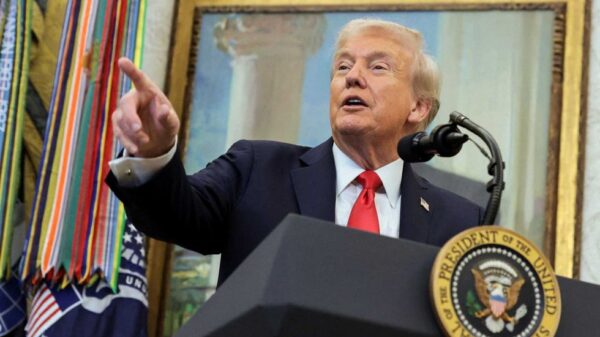URGENT UPDATE: The redistricting debate in California is reigniting as Governor Gavin Newsom faces a critical test of his political strategy ahead of the upcoming November 2023 vote on Proposition 50. This measure seeks to affirm a mid-decade redistricting plan that could potentially add five Democratic seats to the House of Representatives.
New reports confirm that this controversy mirrors a powerful historical moment in 1981, when then-Representative Phil Burton orchestrated a gerrymandering campaign that dramatically reshaped California’s political landscape. His controversial map redraws led to a 28-17 advantage for Democrats in the 1982 midterm elections, a pivotal moment that helped propel the party to a national gain of 26 seats in the House amidst rising concerns over Republican dominance under President Reagan.
As California finds itself once again at the center of a national redistricting debate, the echoes of Burton’s tactics serve as a stark reminder of the lengths to which political leaders will go to secure power. Burton’s approach was characterized as a “diabolical masterpiece” by opponents, who subsequently faced the backlash of voters rejecting the remapping in a June 1982 ballot. However, the state Supreme Court ultimately allowed Burton’s plan to stand, leading to significant Democratic victories that year.
Today, the stakes are high for Newsom and his party. With Senator Alex Padilla scheduled to announce the Redistricting Reform Act of 2025 on Thursday, which aims to prohibit mid-decade redistricting and mandate nonpartisan commissions, the outcome of Proposition 50 could have lasting implications for California’s political future.
The urgency is palpable as voter sentiments shift. Burton’s legacy of aggressive political maneuvering resonates in the current climate, where Democrats perceive Donald Trump and the Republican agenda as existential threats. Newsom defends his redistricting strategy as a necessary response to the GOP’s tactics, emphasizing that California must act decisively to protect its political interests.
As the November vote approaches, the outcome of Proposition 50 will not only affect the balance of power in California but could also set a precedent for how states approach redistricting in the future. The battle is reflective of a broader national struggle over democratic representation and fairness in electoral systems.
Stay tuned for updates as California’s redistricting saga unfolds, with significant implications for both local and national politics. This is a developing story, and the urgency for action has never been more critical.





































































